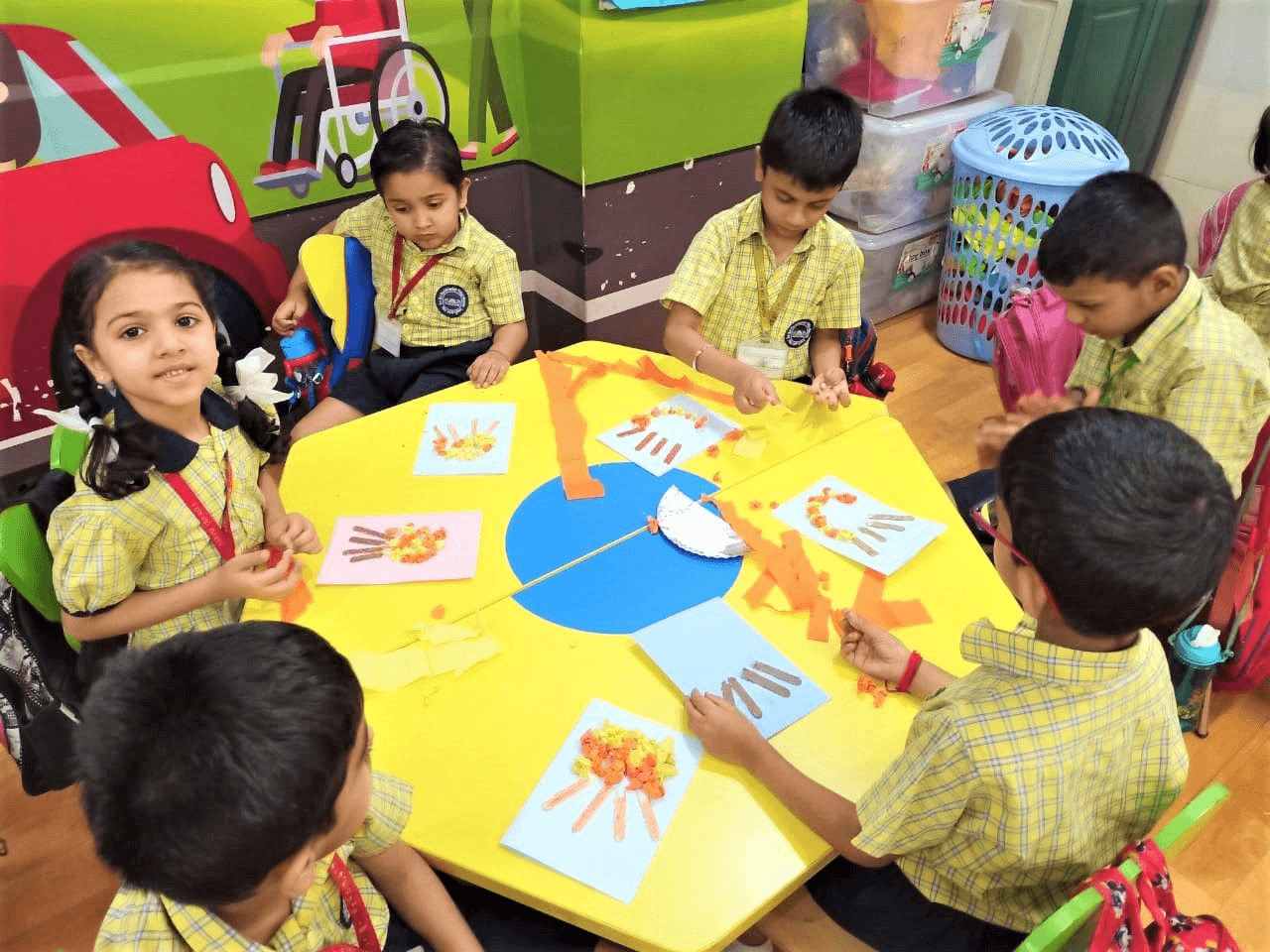Guide to Choosing the Best Play School in India
Finding the best play school in India is one of the most crucial decisions parents make during their child’s early years. The right play school not only introduces children to a world of structured learning but also fosters emotional, social, and cognitive growth.
This guide will help you navigate the essential factors to consider, providing insights to make an informed choice that benefits your child’s future.
Why Play Schools Are Essential
The first few years of a child’s life are formative. Play schools act as a bridge between the home environment and formal schooling. They provide:
Social Skills Development: Interaction with peers and teachers fosters communication and teamwork.
Cognitive Growth: Structured activities build problem-solving and critical-thinking abilities.
Emotional Resilience: Children learn to handle separation from parents, building confidence and adaptability.
Physical Development: Through play, children refine their motor skills and coordination.
Factors to Consider When Choosing a Play School
1. Proximity to Home
A nearby school reduces travel time and fatigue for young children.
It also ensures quick accessibility in emergencies.
2. Curriculum Approach
The curriculum shapes how children learn and interact. Common methodologies include:
- Montessori: Focuses on independence and hands-on learning.
- Reggio Emilia: Encourages exploration and collaboration.
- Play-Based Learning: Combines fun activities with skill development.
3. Safety Measures
Ensure the school has CCTV surveillance, secure gates, and verified staff.
Check fire safety compliance and first-aid readiness.
4. Teacher Qualifications and Training
- Teachers should hold certifications in early childhood education.
- Empathy and patience are crucial qualities in handling young learners.
5. Student-Teacher Ratio
An ideal ratio is 1:10, ensuring each child receives adequate attention.
6. Cleanliness and Hygiene
Assess the school’s cleanliness in classrooms, restrooms, and play areas.
Ask about sanitization protocols for toys and common spaces.
SSRVM: Leading the Way in Play School Education
Sri Sri Ravishankar Vidya Mandir (SSRVM) has earned a reputation as one of the best play schools in India, combining modern educational practices with traditional values.
What Makes SSRVM Exceptional?
- Holistic Curriculum
- Blends academics, creativity, and physical activities.
- Encourages mindfulness and self-awareness through yoga and meditation.
- Trained Educators
- Certified teachers with expertise in nurturing young minds.
- State-of-the-Art Facilities
- Spacious classrooms, interactive learning tools, and safe outdoor play areas.
- Focus on Emotional Growth
- Activities designed to foster empathy, patience, and resilience.
- Parent Engagement
- Regular parent-teacher interactions and workshops to align learning goals.
What to Look for During a Play School Visit
1. Observe the Learning Environment
- Are children engaged and happy?
- Is the space inviting, colorful, and well-organized?
2. Interact with Teachers
- Ask about their teaching philosophy and experience.
- Observe how they communicate with children.
3. Inspect Play Areas
Outdoor play areas should be secure and equipped with age-appropriate equipment.
4. Evaluate Infrastructure
- Well-lit and ventilated classrooms are crucial for a healthy environment.
- Ensure the school complies with safety and hygiene standards.
Red Flags to Avoid
- Overcrowded classrooms or high student-teacher ratios.
- Lack of clear safety policies or emergency plans.
- Limited outdoor play space or focus solely on academics.
How SSRVM Stands Out
SSRVM schools focus on creating a safe, nurturing, and stimulating environment. Their philosophy emphasizes that every child is unique and learns best through exploration and play.
Key Advantages of SSRVM
- Cultural Awareness: Infuses Indian values with global education practices.
- Customized Learning: Caters to individual learning paces and styles.
- Inclusive Practices: Welcomes children with diverse abilities and backgrounds.
Benefits of Play Schools for Children
- Play schools offer far-reaching benefits that extend into later stages of life:
- Improved Communication Skills
- Interaction with peers develops vocabulary and social language.
- Foundation for Academic Success
- Early exposure to numbers, letters, and shapes prepares children for formal schooling.
- Creative Thinking
- Art, music, and storytelling sessions inspire imagination and innovation.
- Teamwork and Collaboration
- Group activities teach cooperation and conflict resolution.
FAQs
1. What age is best for play school?
Ans - Children aged 2 to 4 years benefit most from play school, as it aligns with their developmental needs.
2. How do I know if a play school is safe?
Ans - Look for features like CCTV cameras, secure entrances, verified staff, and emergency response plans.
3. Why is curriculum important?
Ans - A strong curriculum ensures balanced development, integrating play, academics, and social skills.
4. How often should parents communicate with teachers?
Ans - Regular communication, at least once a month, ensures alignment on the child’s progress and needs.
5. Is outdoor play necessary?
Ans - Yes, it promotes physical health, motor skills, and social interaction.
Tips for Parents
- Start Early: Begin your search a few months before admissions open.
- Seek Recommendations: Speak to other parents for insights.
- Trust Your Instincts: Choose a school where you and your child feel comfortable.
- Observe Your Child: Post-enrollment, monitor their happiness and engagement.
Conclusion
Choosing the best play school in India is a significant decision that can shape your child’s future. By considering factors like location, curriculum, safety, and teacher quality, you can ensure a strong start for your little one. Schools like SSRVM stand out with their holistic approach, providing a secure and enriching environment for early learners.
Take the first step today—because every child deserves a happy, inspiring beginning to their educational journey!

